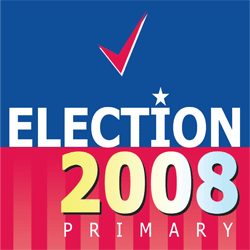
In a community rich with immigrants and young people often unfamiliar or unsure about details of the primary election process, basic questions frequently come up.
The Arab American News tries to answer some of the most common here, in preparation for Tuesday.
What are the August 5 primaries for? Don’t we vote on November 4?
In many local elections, there are currently several candidates to choose from. The purpose of primary elections is to narrow the choices down, usually to two candidates – normally one Republican and one Democrat. Their names then appear on the ballots in November general elections.
In some cases, when all the candidates are from a single party, or when a certain district is known to vote overwhelmingly for one party over the other, a primary election can essentially decide who will ultimately serve in office.
Judicial primaries also serve to narrow down a field of many candidates, but on a nonpartisan basis.
What offices are currently at stake in the local primary elections?
Voters on August 5 will cast ballots to nominate final candidates for offices including U.S. Representative, state Representative, Circuit and District Court Judge, county positions like Sheriff, Treasurer, Prosecutor, Clerk, Register of Deeds and Commissioner, other municipal positions and party precinct delegate.
In Wayne, Macomb and Oakland Counties, a proposal to levy a tax to support the Detroit Zoo will also be on the ballot.
Does a voter have to be an official member of the Republican or Democratic parties to vote in primary elections?
No. Voters on August 5 will receive a ballot with two columns of candidates to choose from. Aside from nonpartisan judicial and proposal sections, voters privately select either the Republican or Democratic column to vote from. You cannot split your ticket. If you vote in more than one party section, your partisan ballot will be rejected.
Who is qualified to vote in the August 5 election?
Any U.S. citizen who has registered to vote in previous elections or registered this year by July 7 can vote in these primary elections. At the polls, voters will be asked for photo ID. If you do not have ID, you can still vote by signing an affidavit affirming your identity.
How do I know where to go to vote?
To find out if you are registered to vote and where your precinct’s polling station is, visit www.michigan.gov/vote and enter your name, birth date and zip code. The site will tell you where to go to vote and also provides a sample ballot showing all the candidates for all the offices you’ll be voting for. If you don’t have access to a computer, call the office of the City Clerk in your city.
How do I know who I should vote for?
After you check out your sample ballot at the above Secretary of State’s website, you can access analyses of candidates from nonpartisan organizations like the League of Women Voters – which offers comprehensive voter information for each state at www.lwv.org or www.vote411.org. Other organizations like the Arab American Political Action Committee, www.aapac.org, also endorse candidates and release information for each election. The Arab American News has made its own endorsements for August 5, printed on page 14 of this week’s issue.
What if my English isn’t perfect and I don’t understand everything on the ballot?
At some polling stations, bilingual poll workers are available to help. If not, you may bring someone along with you to help translate the ballot.






Leave a Reply